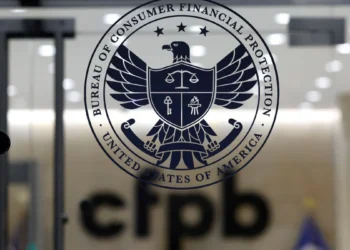Two United States Senators have proposed new legislation to regulate stablecoin cryptocurrencies and clarify their role in the country’s financial landscape.
On Wednesday, April 17, Bloomberg reported that Senator Kirsten Gillibrand of New York and Senator Cynthia Lummis of Wyoming jointly introduced the Lummis-Gillibrand Payment Stablecoin Act in their latest attempt to establish legislation directly impacting the stablecoin sector.
According to the bill, payment stablecoins, defined as dollar-pegged virtual assets intended for transaction settlements, must adhere to stringent regulatory standards. For instance, though the digital asset itself won’t be a security, issuers will be required to convert their product dollars. They will need to add a non-depository trust as a custodian, which will need to use a depository institution as a sub-custodian.
The proposed regulations will also require stablecoin issues to possess one-to-one cash or cash-equivalent reserves to collateralize their coins. This measure is expected to prevent unbacked algorithmic stablecoins and ensure that neither token issuers nor users can utilize stablecoins for illegal or unlicensed operations like money laundering.
Senator Gillibrand reportedly emphasized the critical importance of a regulatory framework for stablecoins in preserving the United States dollar’s global dominance. She expressed confidence that the stablecoin bill would reinforce the nation’s existing dual banking system.
Gillibrand also noted that to draft the most effective bill possible, both offices worked closely with the relevant state and federal regulators to make this a reality.
Senator Lummis also echoed Gillibrand’s sentiments, highlighting the legislation’s alignment with the evolving needs of the dynamic U.S. financial sector.
Notably, the new legislation introduces a $10 billion limit for non-depository trust institutions before they can issue payment stablecoins, ensuring responsible oversight in the stablecoin market.
Most of the largest stablecoin issuers are domiciled in the United States. Thus, if the regulation eventually passes, it is expected to play a significant role in the industry. For example, Circle, the largest stablecoin issuer and issuer of the U.S. Dollar Coin (USDC), is currently not a depository trust institution.
ALSO READ: U.S. House Committee Set to Advance Legislation to Limit SEC Oversight on Crypto
If you want to read more news articles like this, visit DeFi Planet and follow us on Twitter, LinkedIn, Facebook, Instagram, and CoinMarketCap Community.
“Take control of your crypto portfolio with MARKETS PRO, DeFi Planet’s suite of analytics tools.”





















